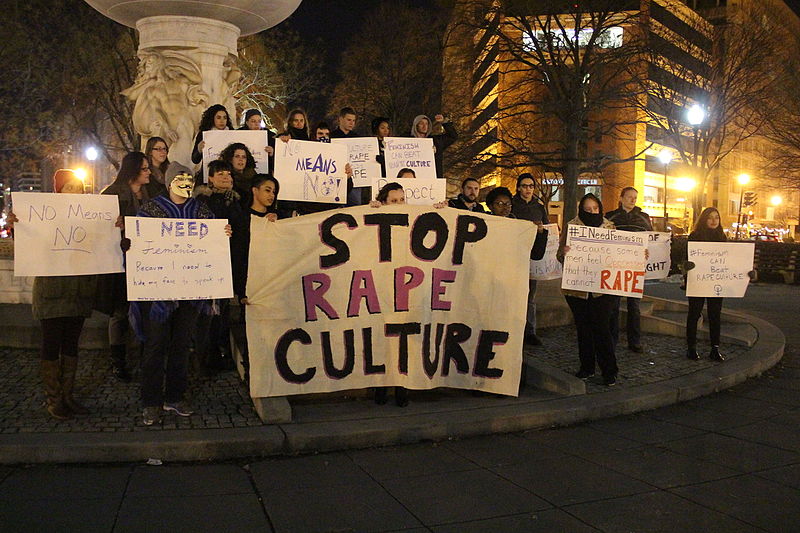Instagram users post about sexual assault
Fourandsixty, Wikimedia Commons
People protest against sexual assault at Dupont Circle in Washington, D.C.
May 27, 2021
Instagram has been creating a safe place for sexual assault victims to speak their truth with the hashtag #EndSexualAssault.
Over 25,000 people have shared a post using this hashtag, including @ourbodies.ourvoice. The account posted, “It is important to keep the conversation around sexual violence going. Just like mental health, speaking out about such issues helps survivors and removes the stigma surrounding issues.”
Victims do not share their stories because they are unaware that they have been harassed/assaulted. The account @ledahealth posted, “Victims are blaming themselves for the incident, fearing shame or judgement, being clueless about how to get help, and encountering legal punishment against the assaulter.”
Reportedly nine out of every 10 victims of rape are female. The account @sexual.assault.awarness2021 posted, “17.7 million American women have been raped since 1998. 2.78 million American men have been raped since 1998.”
The use of this hashtag is for people to educate themselves about sexual assault. It’s also used for people to post studies about sexual assault. The account @mecasa_maine posted, “Every 68 seconds an American is sexually assaulted everyday.”
Statistics claim that 87% of victims knew the perpetrator in cases that were charged by police. The account @r.healing.t posted, “The majority of sexual assaults occur in private spaces like a home. 95% of survivors did not report their assault to the police.”
In some cases, sexual assault happens in the workplace. The account @future.forging posted, “Request for sexual favors, unwanted physical contact, unwelcome sexual advances, and feeling pressured to sexually engage.”
The impact can be felt emotionally, as victims experience anger, fear, humiliation, shame, guilt, betrayal, violation, and powerlessness. @future.forging also posted about the physical and mental effects, “Physical effects are anxiety, depression, panic attacks, PTSD, difficulty concentrating, loss of motivation, substance abuse, and suicidal thoughts. Mental health effects are increased stress levels, headaches, fatigue, sleep disturbances, and eating disturbances.”
The account @r.healing.t suggests that victims share their experiences at their own pace when talking about sexual assault. @r.healing.t posted, “Be patient, empower them to use and help navigate other resources, honor their trust by keeping information to yourself, make it clear the only person to blame is the abuser.”
To prevent offenders from re-offending, studies suggest that 17 percent of sexual abuse survivors report the abuse. The account @voices_in_action posted, “21 percent of survivors report to improve police surveillance or believed they had to duty too, 25 percent of survivors report to stop the incident or prevent recurrence, 28 percent of survivors report to protect the household or victim from further crimes by the offender.”
Other related hashtags on Twitter include #EndRapeCulture, #EndSexualHarrasment, #EndRapeofMinors, and #EndChildMarriage.






















































